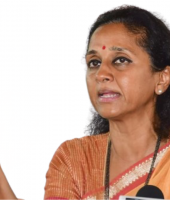UPDATING LIVE: Security Council meets on Gaza as risk of famine grows by the day
Well over half a million Gazans are “one step away from famine”, say UN humanitarians, ahead of a Security Council meeting due to start at 3:00 PM in New York on food security in the stricken enclave. The deputy head of UN aid coordination told ambassadors that famine is "almost inevitable" unless aid can be scaled up. Follow our live coverage here.
3:09 PM
“Food security experts warn of complete agricultural collapse in northern Gaza by May if conditions persist, with fields and productive assets damaged, destroyed, or inaccessible,” Mr. Rajasingham said. “Many have had little choice but to abandon productive farmland due to evacuation orders and repeated displacement.”
The hostilities have caused widespread shortages, heavy damage to water infrastructure and scarcity of products and even opportunities to fish alongside rising hunger and the looming risk of famine, he said, calling for solutions to scale up humanitarian aid deliveries.
Famine is 'almost inevitable' without action
“The stark reality, however, is that a response at the level required will be impossible without immediate and concerted action by the parties, the Security Council, other Member States and the wider international community,” he said, adding that the white note submitted to members sets out recommendations for this action.
At this stage, very little will be possible while hostilities continue and while there is a risk that they will spread into the overcrowded areas in the south of Gaza, he said, reiterating the call for a ceasefire.
“If nothing is done, we fear widespread famine in Gaza is almost inevitable and the conflict will have many more victims,” he said.
3:03 PM
Guyana hold the presidency of the Security Council for February and their Permanent Representative Carolyn Rodrigues-Birkett has just gavelled the meeting open.
‘Complete agricultural collapse’ looms by May in northern Gaza
OCHA deputy chief Ramesh Rajasingham told ambassadors the situation in Gaza was grave with practically the entire population left to rely on “woefully inadequate humanitarian food assistance to survive.”
He said there was every chance, the situation would simply get worse.
“Military operations, insecurity and extensive restrictions on the entry and delivery of essential goods have decimated food production and agriculture”, he added.
2:30 PM - The UN humanitarian affairs coordination office, OCHA, said in information formally submitted on 22 February to ambassadors – known as a white note – that at least 576,000 people were “facing catastrophic levels of deprivation and starvation” across Gaza.
The briefing is happening under the Council’s agenda item on protecting civilians in armed conflict. The Deputy Director of OCHA is due to speak alongside the deputy heads of the Food and Agriculture Organization (FAO) and World Food Programme (WFP).
Guyana and Switzerland, who are the Council focal points on conflict and hunger, called for the meeting along with Algeria and Slovenia in response to the alarm raised by OCHA.
The official system used by the UN and many other relief agencies to measure food insecurity (the IPC classification index) warned that the entire 2.3 million population of Gaza would be facing acute levels of insecurity by this month – the highest share ever recorded.
Famine risk, wasting among children
The white note says at least 576,000 are close to famine, adding that the figures are conservative, and the risk of famine is growing every day that the war and obstacles to humanitarian relief continue.
The Global Nutrition Cluster reported on 18 February that around one in six children under age two are now experiencing wasting, the most life-threatening form of malnutrition.
Steps towards a ceasefire
Intense fighting continues between Israeli forces and Palestinian militants. Amid repeated calls to end the hostilities, negotiations are continuing between the warring parties, overseen by Qatar, which are aimed at securing a deal for a ceasefire and sequenced release of more hostages still being held in Gaza, according to news reports.
Meanwhile at UN Headquarters, it is being reported that the United States has circulated a revised draft resolution to Security Council members calling for a temporary ceasefire in Gaza along with hostage releases as soon as possible and for Israel to refrain from any invasion of Rafah “under current circumstances”.
The US vetoed the last resolution put forward by Algeria demanding an immediate humanitarian ceasefire on 20 February, arguing it would destabilize substantial talks going on in Qatar,
Lifesaving aid barriers
Just last week, the UN’s Special Coordinator for the Middle East Peace Process briefed the Council, while medical charity Médecins Sans Frontières reported that a pattern of attacks by Israeli forces against hospitals and other civilian buildings, together with humanitarian personnel and convoys, was “either intentional or indicative of reckless incompetence”.
Briefing reporters in New York ahead of the Security Council meeting, UN Spokesperson Stéphane Dujarric said there were multiple factors holding up the aid effort, primarily the lack of ceasefire, “a lack of respect for international law…a breakdown of law and order in Gaza” and a simple lack of trucks to move vital supplies.
“There has been very little, if any, effective coordination with Israeli authorities on deconfliction”, and the ability to move convoys to the north, he added.
Find our latest story on the humanitarian effort here.












Comment List